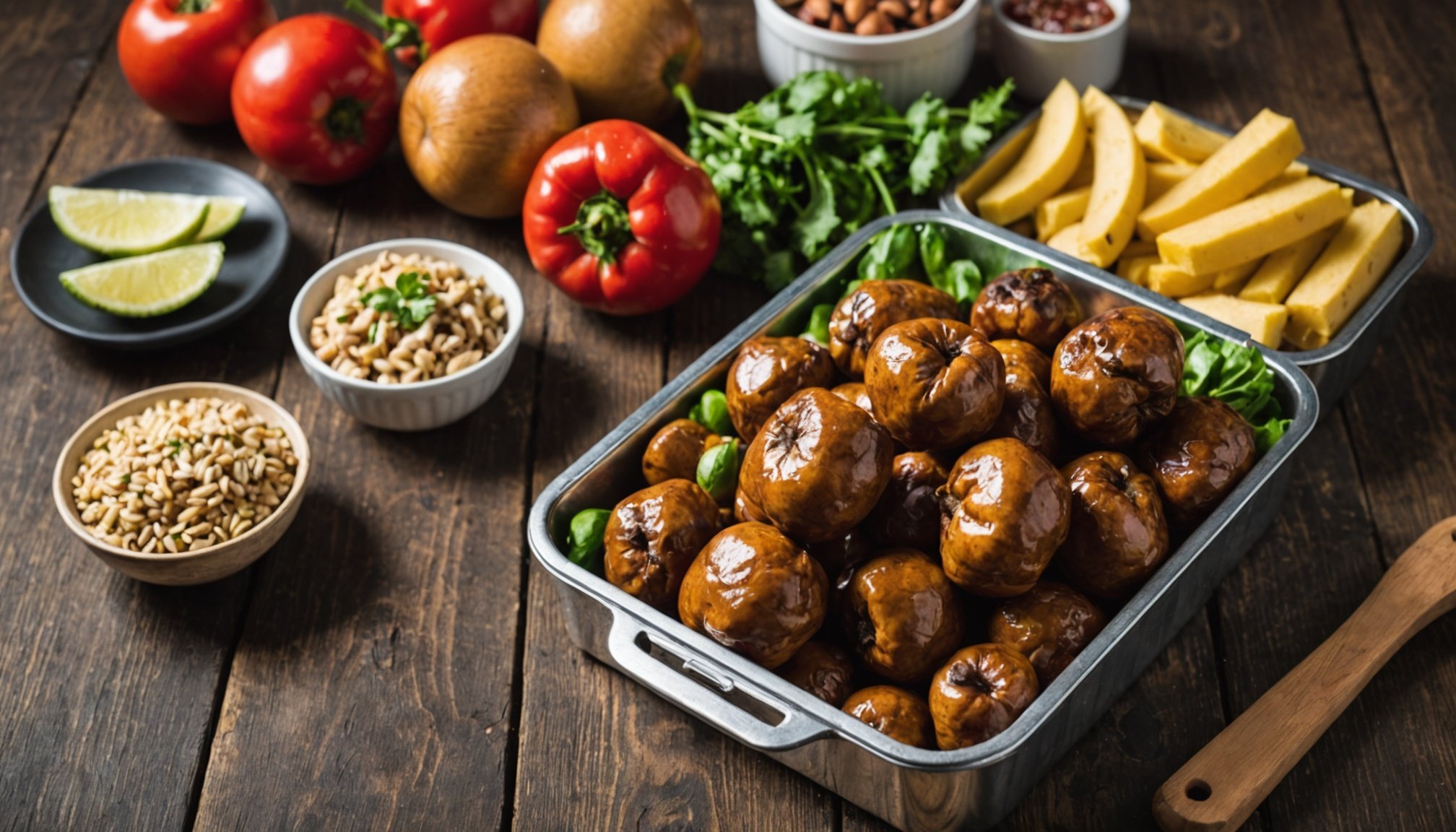Ultimate Guide to Off-Season Nutrition: Key Dietary Tips for UK Boxers
When it comes to boxing, nutrition is just as crucial as the training itself. During the off-season, maintaining a balanced and strategic diet can make all the difference in a boxer’s performance when the fight season arrives. Here’s a comprehensive guide to help UK boxers optimize their nutrition for peak athletic performance.
Understanding Your Nutritional Needs
Before diving into specific dietary tips, it’s essential to understand the nutritional needs of a boxer. Boxing is a high-intensity sport that requires a combination of strength, endurance, and agility. Here are the key components of a boxer’s diet:
In the same genre : Mastering breakfall skills: key strategies for uk judo coaches to boost athlete performance
Macronutrients: The Building Blocks
- Protein: Essential for muscle repair and growth. Aim for 1.6-2.2 grams of protein per kilogram of body weight per day. Foods like lean chicken, fish, eggs, and plant-based options such as beans and lentils are excellent sources[1][3].
- Carbohydrates: Provide energy for training sessions. Focus on complex carbs like brown rice, quinoa, and sweet potatoes. These foods release energy slowly, helping to maintain blood sugar levels during intense training.
- Fats: Healthy fats are crucial for hormone production and energy storage. Include sources like nuts, seeds, avocados, and olive oil in your diet.
Vitamins and Minerals
- Vitamins: Vitamin C, D, and E are important for immune function and overall health. Foods rich in these vitamins include citrus fruits, fatty fish, and leafy greens.
- Minerals: Calcium, iron, and magnesium are vital for bone health, oxygen transport, and muscle function. Include dairy products, red meat, and dark leafy greens in your diet.
Creating a Balanced Diet Plan
A balanced diet plan is not just about eating the right foods but also about timing and portion control.
Meal Frequency and Timing
- Eat Frequently: Aim for 5-6 meals per day, including 3 main meals and 2-3 snacks. This helps maintain stable energy levels and supports muscle recovery.
- Pre- and Post-Workout Meals: Before training, consume a balanced meal with carbs, protein, and healthy fats about 1-2 hours in advance. Post-workout, focus on a mix of carbs and protein to aid in recovery.
Sample Meal Plan
Here’s a sample meal plan for a boxer:
Additional reading : Elevate your boxing game: leveraging cutting-edge technology for enhanced punching precision among uk fighters
| Meal Time | Meal Description |
|---|---|
| Breakfast | Oatmeal with banana, almond butter, and a scoop of whey protein |
| Mid-Morning Snack | Apple slices with peanut butter |
| Lunch | Grilled chicken breast with quinoa and mixed vegetables |
| Afternoon Snack | Greek yogurt with berries and a handful of almonds |
| Dinner | Grilled salmon with sweet potatoes and green beans |
| Evening Snack | Cottage cheese with cucumber slices |
Hydration and Electrolytes
Hydration is critical for athletic performance, especially in high-intensity sports like boxing.
Why Hydration Matters
- Performance: Even minor dehydration can impair reaction time, endurance, and mental clarity.
- Recovery: Proper hydration aids in muscle recovery and reduces the risk of injury.
Tips for Hydration
- Drink Plenty of Water: Aim for at least 2 liters of water per day.
- Electrolytes: Include electrolyte-rich drinks or supplements, especially during and after intense training sessions.
- Monitor Urine Color: If your urine is pale yellow or clear, you are well-hydrated.
Managing Body Fat and Weight
During the off-season, it’s important to maintain a healthy body fat percentage and weight to ensure optimal performance when the fight season begins.
Weight Management
- Avoid Extreme Cuts: Gradual weight reduction is key. Work with a sports nutritionist to craft a plan that maintains muscle while shedding excess weight[1].
- Monitor Body Fat: Aim for a body fat percentage that is optimal for your weight class. For most boxers, this is between 6-12% body fat.
Cutting Weight vs. Fat Loss
- Cutting Weight: This is typically done just before a fight and involves reducing water weight. It should be done strategically under expert guidance to avoid depleting strength and performance.
- Fat Loss: Focus on sustainable fat loss through a balanced diet and regular training. This approach ensures you maintain muscle mass while reducing body fat.
Supplements and Additional Nutrients
While a balanced diet should be the primary source of nutrients, certain supplements can be beneficial for boxers.
Protein Supplements
- Whey Protein: Helps in muscle recovery and growth. Consume a scoop post-workout and another before bed.
- Casein Protein: Slow-release protein that helps in overnight muscle recovery.
Amino Acids
- BCAAs (Branched-Chain Amino Acids): Reduces muscle soreness and aids in recovery during intense training.
- Glutamine: Supports immune function and muscle recovery.
Other Supplements
- Creatine: Enhances high-intensity performance by increasing muscle strength and endurance.
- Omega-3 Fatty Acids: Reduces inflammation and supports overall health.
Practical Tips for Busy Boxers
For boxers with busy schedules, managing training and nutrition can be challenging.
Balancing Training and Nutrition
- Prioritize Recovery: Ensure you get 7-9 hours of sleep nightly and include active recovery sessions like light stretching or yoga[1].
- Time Management: Use your limited training time efficiently. For example, combine strength training with bag work to maintain skill levels without overtaxing your body[2].
Example Training and Nutrition Schedule
Here’s an example of how a busy boxer might balance their training and nutrition:
- Morning Training:
- Warm-up: 10-15 minutes
- Strength Training: 20-30 minutes
- Bag Work: 20 minutes
- Post-Training Nutrition:
- Immediate Post-Workout Snack: Protein shake with carbs
- Meal 1 Hour Post-Workout: Balanced meal with protein, carbs, and healthy fats
Nutrition is a cornerstone of a boxer’s training regimen, especially during the off-season. By focusing on balanced macronutrients, staying hydrated, managing body fat and weight, and incorporating beneficial supplements, boxers can ensure they are in peak condition for their next fight.
Final Tips
- Consult a Sports Nutritionist: Tailor your diet plan to your specific needs and goals.
- Stay Consistent: Consistency is key in nutrition and training. Stick to your plan even on rest days.
- Listen to Your Body: Pay attention to how your body responds to different foods and training regimens. Adjust your plan accordingly.
By following these guidelines, UK boxers can optimize their nutrition, enhance their athletic performance, and step into the ring with confidence and readiness. Remember, a good boxer diet is not just about what you eat, but also when and how you eat it. Plan, prepare, and dominate.











